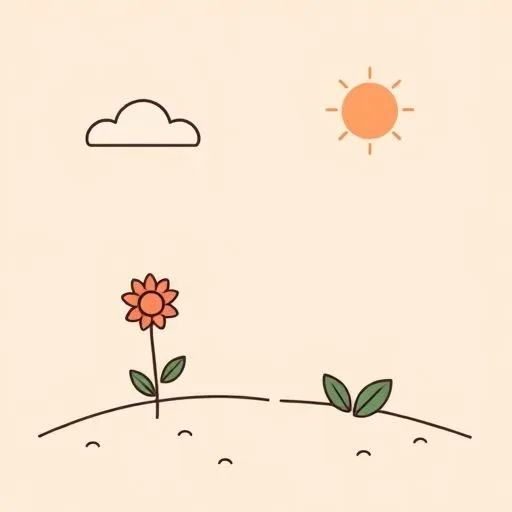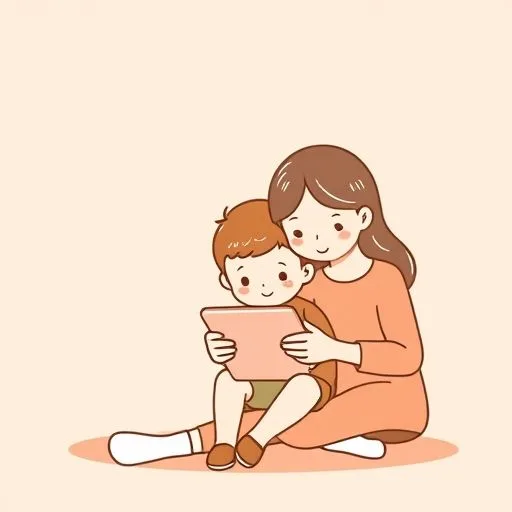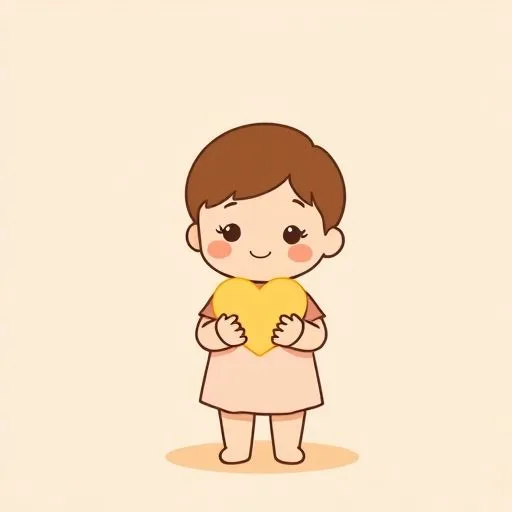
There’s something magical about watching my daughter’s eyes light up when she discovers something new lately—whether it’s identifying shapes in the clouds or figuring out how to make her drawing app create rainbow effects. It got me thinking about how different her world is from mine at that age, and how much more different it will be when she’s grown. With AI transforming workplaces faster than we can blink, it’s natural to wonder: how do we prepare our little ones for a future where intelligent machines are everywhere? So, what’s the secret to preparing them for this brave new world? It’s not about teaching them to compete with AI—it’s about nurturing the uniquely human qualities that will make them irreplaceable!
How Can We Develop Judgment That No Algorithm Can Replicate?

Remember when we used to worry about calculators making kids bad at math? Now we’re facing AI that can write essays, analyze data, and even create art. But here’s the beautiful truth—no matter how advanced AI gets, it can’t replace human judgment! Just like we’re learning to guide AI tools at work, our kids need to develop their own sense of right and wrong.
Watching my daughter navigate playground politics or decide whether to share her favorite crayon has shown me something profound: these little moments are actually big steps in helping her make tough calls later on. When she asks, “Is it fair if I play with this toy but not let my friend try?” she’s building her moral framework—one no algorithm can program.
In our home, we’ve made it a habit to ask open-ended questions that encourage critical thinking. Instead of “Was that nice?” we try “How do you think that made your friend feel?” These conversations might seem simple, but they’re actually the foundation of the judgment that will make our children valuable collaborators with AI in the future!
How Do We Teach Kids to Question the Magic Box?

Have you ever noticed how kids take everything tablets or smart speakers say as the truth? It’s both adorable and a little scary! In a world where AI can generate convincing misinformation, teaching our kids to be critical thinkers isn’t just important—it’s essential survival skill! But how do we ensure they’re not just passive consumers of information? This is a key aspect of raising children with AI.
I’ve found that the best approach is making critical thinking a game. When we watch videos together, we’ll ask questions like, “How do you think they made that effect?” or “Do you think everything in that cartoon is real?” My daughter absolutely loves being a ‘detective’ and spotting things that seem too perfect or impossible.
This habit of questioning extends beyond screens to everyday life. When we’re out shopping and see amazing claims on packaging, or when a friend shares something surprising online, these moments become opportunities to discuss evidence and bias. It’s like giving our kids mental armor against the flood of information they’ll encounter—teaching them not to reject AI outright, but to engage with it thoughtfully.
How Can We Help Kids Navigate Tomorrow’s Unknowns?

One thing I’ve learned from watching technology evolve is that change isn’t just coming—it’s already here! My daughter thinks nothing of talking to smart devices, expecting toys to recognize her voice, and swiping through photos like it’s the most natural thing in the world. For her, this is normal. For us parents? It’s a constant reminder that the future sneaks up on us faster than we think.
The workplace advice about flexibility amidst rapid changes hits differently when you’re raising a child. How do we prepare them for jobs that don’t exist yet using technologies that haven’t been invented? The answer lies in embracing change ourselves and modeling adaptability as part of preparing children for an AI future.
In our family, we treat unexpected changes as adventures. When a favorite playground closes for renovations, we explore new ones together. When a recipe doesn’t turn out as expected, we experiment with adjustments. These small moments teach resilience and creative problem-solving—skills that will serve our children well no matter what technological waves come their way!
What Everyday AI Parenting Strategies Create Big Results?

Here’s the secret I’ve discovered: preparing our kids for an AI-integrated future doesn’t require overhauling our parenting. Instead, it’s about making small, intentional shifts in our daily interactions that add up to significant results. This approach works for any parent navigating the technology age.
One of my favorite strategies is turning screen time into collaborative creation. Rather than just watching videos, we use simple art apps together where she makes decisions about colors and effects, and I help with technical aspects. This mirrors how workplaces are evolving—AI handles the execution while humans guide the direction.
Another small shift is encouraging what I call ‘analog problem-solving.’ When she’s building with blocks or figuring out a puzzle, I resist the urge to jump in with solutions. Instead, I ask questions that help her work through challenges herself. This builds confidence and creative thinking skills that AI can’t automate.
These small changes—prioritizing human connection, encouraging creativity, developing critical thinking—aren’t just preparing our kids for future workplaces. They’re helping them become the kind of people who can shape those workplaces with wisdom, compassion, and innovation!
What Hope Exists for Our Children in the Algorithm Age?

As I watch my daughter grow and change, I’m filled with a hopeful excitement about the world she’ll help create. Yes, AI will transform how we work and live, but it won’t diminish the importance of human connection, creativity, and wisdom. These are the human qualities AI can’t replace.
In those quiet after-school moments when we share a snack and talk about our days, I’m reminded that what matters most hasn’t changed and won’t change. The ability to love, to empathize, to create beauty, to pursue justice—these are the qualities that will define our children’s success in any future.
So let’s embrace the changes coming our way not with fear, but with confidence in the human spirit we’re nurturing in our kids. They’ll grow up not competing with AI, but collaborating with it—using technology as a tool to amplify their humanity, not replace it.
After all, the most advanced algorithm can’t replicate the joy of a child’s laughter, the comfort of a parent’s hug, or the hope we pass to the next generation. That’s the magic we’re creating every day, and it’s something no machine can ever take away. And THAT, my friends, is the superpower we’re giving our children every single day!
Source: AI in the workplace: 5 ways to adapt to AI at work, Zapier, 2025/09/23 13:00:07.
